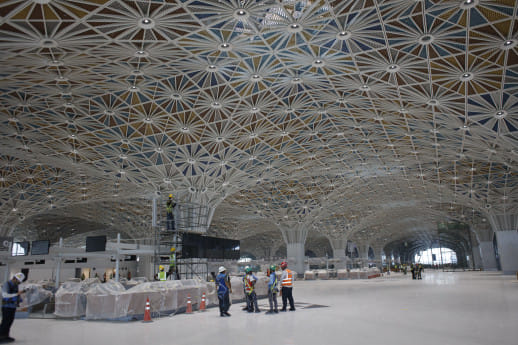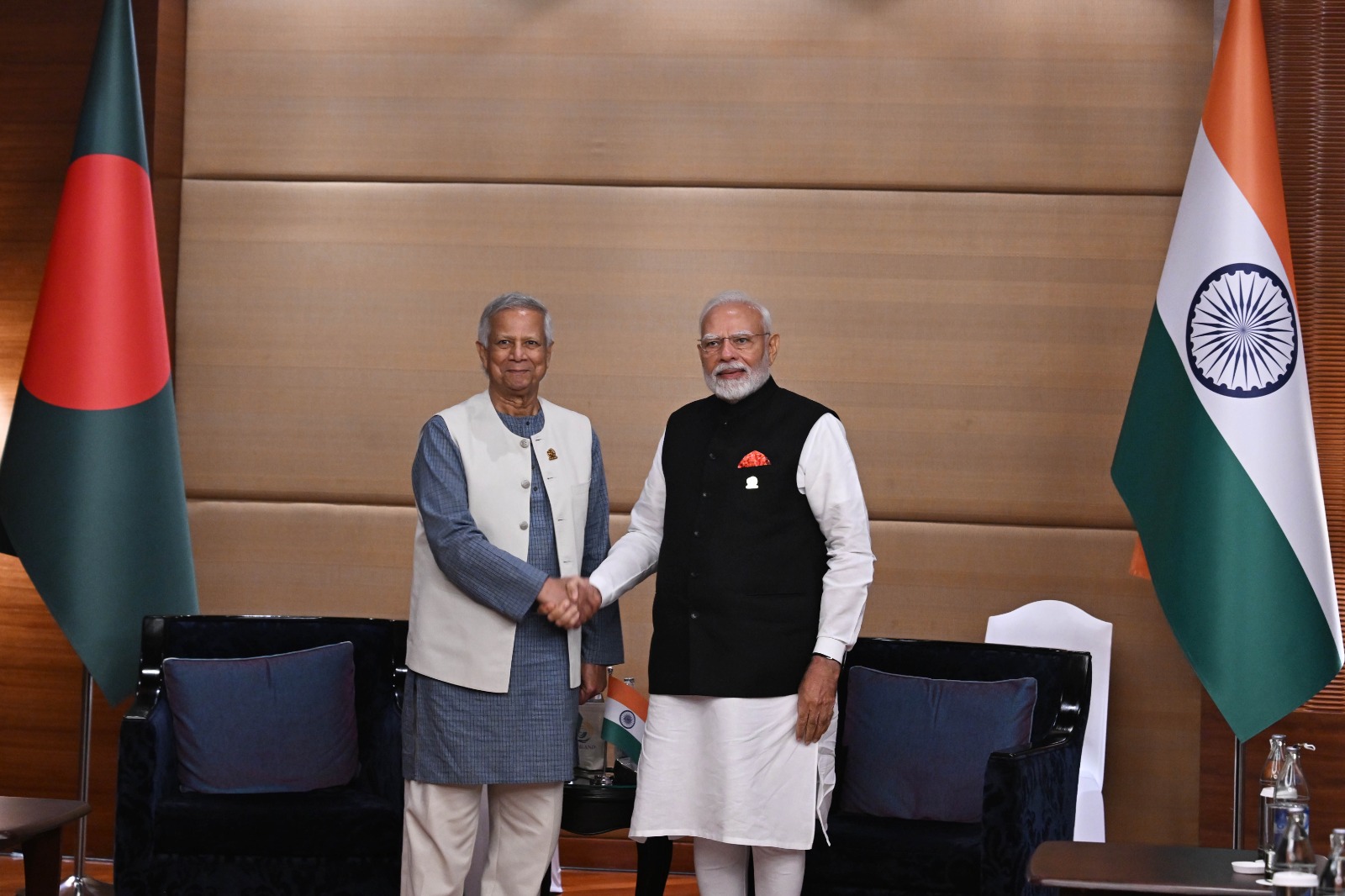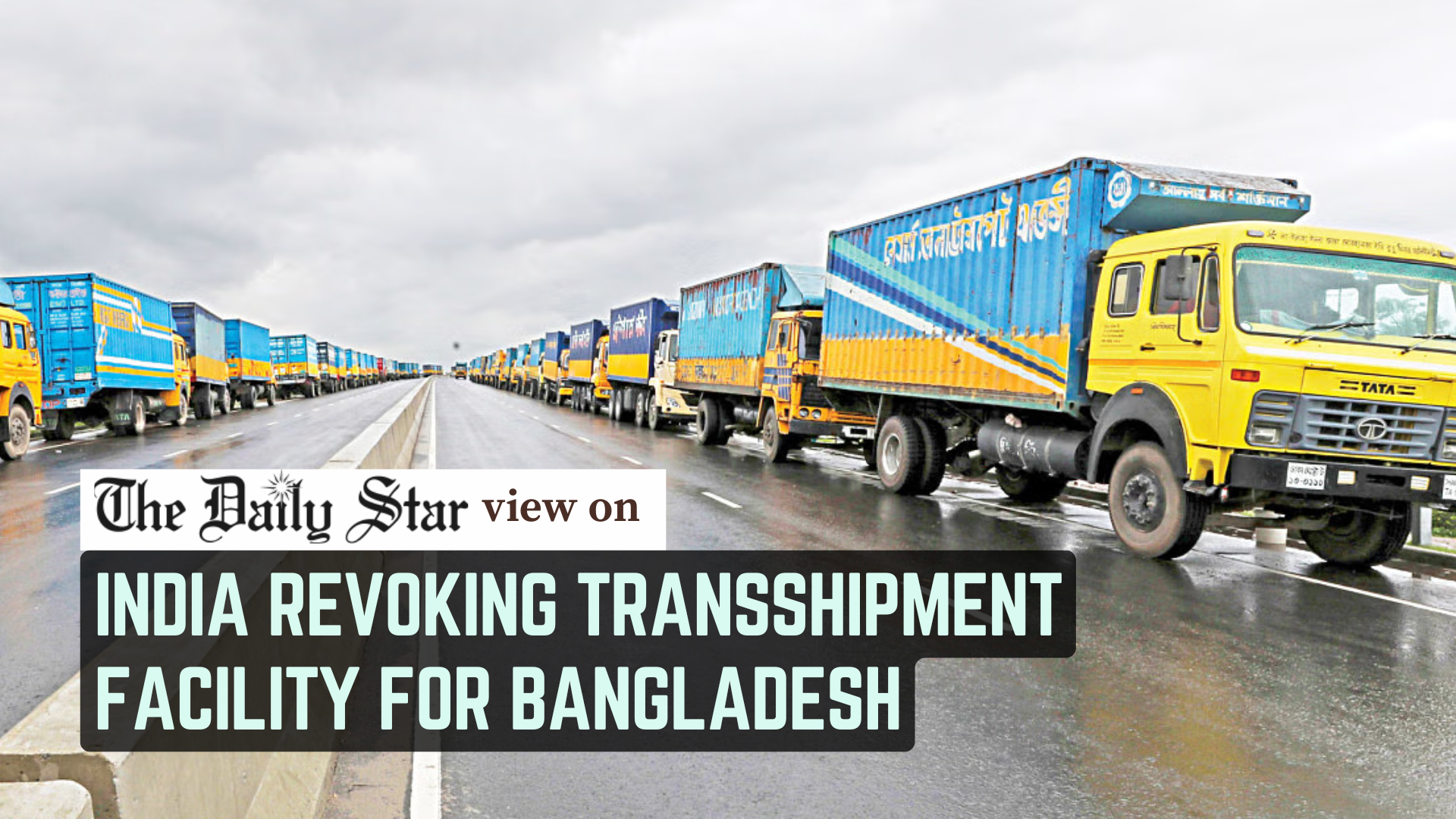India’s transshipment revocation should be a wake-up call

On April 8, 2025, India revoked the transshipment facility that allowed Bangladeshi exporters to use Indian land routes and airports—especially Delhi's Indira Gandhi International Airport—for exporting goods to third countries. The facility had been extended to Bangladesh on June 29, 2020, enabling Bangladeshi exporters to move goods via Indian Territory for faster and more cost-effective international shipment. It is speculated that this was done to send a political message, but according to the Indian government, they withdrew the facility based on Indian exporters' demand.
The sudden revocation came as a blow to many Bangladeshi exporters who had become increasingly reliant on the Indian routes due to persistent inefficiencies and high costs at home, especially at Dhaka's Hazrat Shahjalal International Airport (HSIA). Despite all the hue and cry over this issue, it should be noted that only 18-20 percent of Bangladesh's air exports were routed through India. Approximately, 20-30 trucks used to travel from Bangladesh to Delhi each day via the Benapole-Petrapole land route but many exporters did not mind transporting goods almost 1,900 km overland through India for several reasons.
Among the key reasons were the higher cost and congestion at HSIA. While it costs $3 per kilogramme (kg) to ship garments from HSIA to European destinations, the same costs only $1.2 via Delhi. There are some additional charges as well such as handling charges, scanning charges, daily warehouse charges, etc. Besides, HSIA's cargo handling capacity has already been exceeded causing tremendous congestion. Operational inefficiencies also occurred due to delays from the frequent breakdown of explosive detection scanners (EDS), lack of ground handling proficiency, frequent congestion at cargo terminals and Biman's monopolistic attitude among other factors. Goods were often stuck for days, jeopardising shipment deadlines and causing huge losses for exporters.
India's decision must serve as a turning point for Bangladesh's export logistics strategy. The dependence on a foreign nation for transshipment or the reliance on foreign carriers for cargo export exposes a structural vulnerability in the country's trade infrastructure. As a part of the solution, the third terminal must be immediately made fully operational. According to the Civil Aviation Authority of Bangladesh, once operational, the third terminal will increase handling capacity from the existing 200,000 metric tonnes to over 500,000 metric tonnes annually. This should be considered as the most immediate fix and must be expedited with urgency.
Besides, Shah Amanat and Osmani international airports should also be equipped with modern cargo terminals, customs clearance systems, and scanners to decentralise cargo movement and reduce pressure on Dhaka. Establishing digital customs clearance system, automating documentation, and introducing AI-based cargo routing can cut delays and enhance traceability. The rates of cargo transporting and other handling charges should be brought down to reasonable amounts.
Globally, cargo movement by air transport has been significantly increasing over the past few decades. Transportation by air has been marked for its speedy and reliable movement of time-sensitive and high-value goods. Therefore, it is preferred to sea transportation despite its higher cost. This led many countries to increase their cargo transport capacity by air to capture the international market.
However, Bangladeshi airlines have yet to add any dedicated cargo aircraft to their fleets. Neither is there any Bangladeshi cargo airline in operation to take the opportunity. As such the country's exporters had to rely heavily on foreign carriers. Biman carried only 43,044 tonnes of cargo in FY2023-2024 out of a total 343,643 tonnes. This means over 85 percent of air cargo transport to and from Bangladesh is being carried out by foreign carriers, reflecting that the country's logistics sovereignty is not only under threat but also drains a huge amount of foreign currency from Bangladesh.
Since the inception of Bangladesh, the aviation sector has never been given priority or importance, resulting in a long-standing failure to build air cargo infrastructure in the country. Over the past two decades, multiple private Bangladeshi airlines were launched and later shut down showing various causes. The reality is the authorities never addressed issues such as the high airport and landing charges, burdensome surcharge rates (as high as 72 percent yearly on arrears), unpredictable fuel pricing, delays in customs handling, economic recessions, etc as the reasons behind the airlines' failure. As a result, the entire airline market of the country has gone on to the hands of foreign carriers.
The government must find out why the airlines have or are failing, not to blame any particular actor/actors but to create a sustainable environment for the airline business. Policymakers should create incentives for the emergence of homegrown dedicated cargo and passenger carriers. This includes providing access to funding, tax holidays, reduced aviation fuel prices, streamlining licensing procedures, and reducing surcharges and non-aeronautical charges. Increasing the capacity of the country's air transportation will help retain huge sums of foreign exchange both in the international passenger and cargo sectors.
Bangladesh Biman and US Bangla should be supported so that they can include dedicated cargo aircraft in their fleets. The government may offer incentives to interested entrepreneurs for launching dedicated cargo airlines to enhance cargo air transportation capacity in the country. Beside Bangladesh Biman, the government may launch another airline under public and private partnership and bestow its management to aviation professionals.
India's revocation of the transshipment facility should not be viewed merely as a diplomatic inconvenience or a short-term challenge. It highlights a glaring weakness in Bangladesh's export infrastructure and calls for immediate, systemic reforms. Investing in airport modernisation, creating local air transport capacity for cargo, easing regulatory bottlenecks, lowering operational costs for local airlines, and offering competitive cargo handling prices must be given the utmost priority. In fact, Bangladesh should develop a target as to where it wants to see itself in the aviation business and what share of the market it wants to retain.
Wing Commander ATM Nazrul Islam (retd) is serving as an adviser to the United College of Aviation Science and Management and Aviet-Hansa Aircraft Services.
Views expressed in this article are the author's own.
Follow The Daily Star Opinion on Facebook for the latest opinions, commentaries and analyses by experts and professionals. To contribute your article or letter to The Daily Star Opinion, see our guidelines for submission.




 For all latest news, follow The Daily Star's Google News channel.
For all latest news, follow The Daily Star's Google News channel. 


Comments